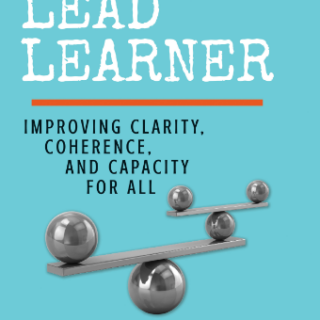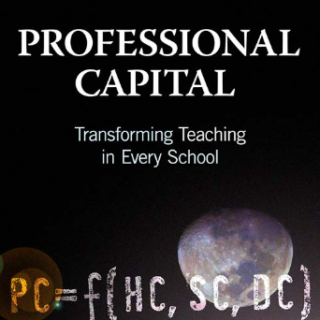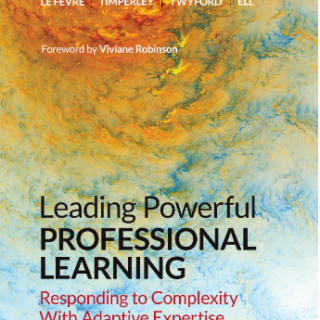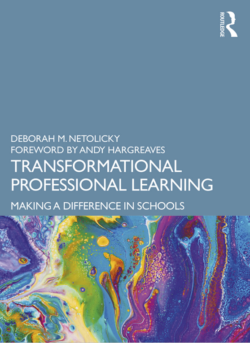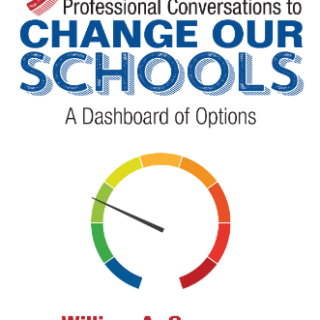Cosán
Central to Cosán is the notion that teachers’ learning should have an impact on their practice and on the learning of their students. It recognises teachers as autonomous and responsible professionals who are best placed to determine such impact, and to prioritise the learning that benefits them and their students. The framework supports them in doing so.
Learning processes such as engagement in professional conversations, reading a relevant article, team teaching with a colleague and engaging in collaborative reflection afterwards, attendance at a professional learning event, facilitating school-based learning events, engaging in mentoring/coaching, etc., are all valued under Cosán.
Video Resources
Teachers and Leaders share their experiences of Cosán
Why is Cosán important?
The framework itself is a tool and it is very useful in terms of framing how professional learning fits within your school improvement plan or looking at the school self-evaluation process. And I think as well, it is also very much reflective of the language and the emphasis that is placed on learning within the looking at our school’s framework. So for me it is fundamental to all school initiatives that are taking place.
Cosán differs from usual methods of engaging with initiatives which generally deal with the what and the how. By reflecting at a deeper level and from different perspectives we can ask ourselves why we engage and in what way it affects our existing value systems, and in this way initiatives don’t become an added extra which can often lead to overwhelm and impact our wellbeing. But instead they become thoroughly discussed and interrogated in advance and throughout and they get blended with our existing structures in our schools.
Cosán will help teachers to reflect and to evaluate their experience of a new initiative and bringing teachers together to share this.
The core focus of Cosán being the impact that teacher professional learning has on student learning is reflected in all of the other initiatives. So, if we look at the Droichead process that is happening in school, if we look at school self-evaluation, the digital learning strategy, if we look at things like the junior cycle; all of that ties very closely with Cosán as well as the reflective practice element.
How have Cosán workshops supported quality teaching and learning in your school?
I feel one of the strong benefits of Cosán is that it helps, and the workshops help, in giving shape and structure and perhaps a little bit of a context to much of the professional growth that is happening already within our school community and I think it is important that Cosán acknowledges and recognises this professional growth that is already happening. I think that recognition is something that is really important. But in addition it is also providing us with a framework that allows for really valuable conversations to happen in our school.
The Cosán workshops provide a fantastic opportunity for schools to come together. For the teachers who are directly involved in professional learning in the school, whether they be teachers and management or otherwise, to come together and share a best practice and ideas amongst schools.
The Cosán workshops have given us an opportunity to reflect on the type of professional learning that we are engaging in, what is relevant to us, and what is suiting our particular context and the culture of our school at this particular point.
For us, the Cosán workshops what it really cemented was our approaches to reflection and it actually gave us a concrete idea of how we reflect. So for example, using video is always very important for us and professional learnings; harnessing those and capturing those and then I suppose valuing that self-reflection approach and looking at how we are actually doing it day on day and then within our subject departments, both individually and collaboratively.
How can Cosán support us as we aim to harness the power of teachers’ continued professional growth?
Cosán acknowledges that teachers are engaging in professional practice all the time. It just creates a platform for the focus to be placed on professional learning , creating time, and space for teachers to come together and talk about the issues, the successes, and the challenges that they are experiencing particular to their school and to their students and to their subjects, and especially in the current environment that we find ourselves working in where there is a lot of change happening.
What I find is that as part of a coherent teacher learn programme Cosán supports the integration of professional learning into the life of the school where teachers can identify their own emerging needs and begin to address them.
I think also it provides to teachers a very important sense of wellbeing and promoting wellbeing. That notion that our wellbeing comes through many different facets, but one of the facets would be the notion of our own continuous professional learning and journey as I frequently get told every day is a school day and I think it is really important that Cosán promotes that notion of lifelong learning within the school.
This year we utilised Cosán’s collaborative reflective approach to really engage with planning for teaching and learning and in a series of class group level meeting held we reflected on our vision and practice. We evaluated how we were optimising TPLs in our own school and looked at how our practices and systems supported our ethos and values. It was really affirming and activating.
This year we piloted Brookfield’s critical reflection four lens approach. This has really helped us see things through different ways and different perspectives and we aim to value our own experiential lens and see things through the lens of our colleagues and our pupils and also see theory in a new light and reflect on ways in which it can be helpful and relevant to us.
It is vitally important that as a whole community that we are gathering evidence and in order to do that we have to come together as a staff and professional dialogue has to be present. The Cosán framework is fantastic for referring back to it and looking at our practices and ultimately leading us to sustained growth and development within the school.
How has Cosán supported you in the area of reflection and teachers’ professional learning?
Prior to engaging in the Cosán workshops I suppose I would have always assumed that reflective practice meant writing a reflective diary or keeping a reflective journal, but engaging in the Cosán workshops it really opened my eyes to the alternative to that traditional reflective portfolio. So it allowed me to explore different methods of recording my reflections. So using photographic evidence, maybe using digital portfolios.
Reflecting on our practice collaboratively brings the two themes of policy and systems and planning to life and it allows us to critically evaluate what is most relevant and meaningful in our context. Examining not just the how but the why, and indeed the why not, of things.
Reflection is really important both for me and my colleagues around me because I feel that it offers us the chance to reflect in terms of space and time. I have been teaching an Elizabeth Bishop poem to my sixth years lately and in it in the questions of travel it talks about a sudden golden silence and in that sudden golden silence she finds the space to explore philosophy, for thinking and for reflecting, and our lives as teachers are so hectic we frequently don’t have that space if we don’t make the time for it.
It also allows us to spot the jigsaw pieces that are missing from what we are doing; the gaps that we need to target and the gaps that we need to fill and if we are not reflecting on what we have done there is no way that we can move forward to do what is right and do it even better.
Reflection is very important to our practice as teachers. It gives us a chance to come together to think about our experiences, to reflect on our experiences and to construct new learning together.
We have been able to create spaces where we have been able to stand back to actually explore what it is we are actually doing. So reflection hasn’t been just about improving practice and making practice work more smoothly; it also allows us the safe space to stand and kind of challenge the values and beliefs and structures that we all hold as teachers that work in school. And asking ourselves why we do what we do.
How can school leadership continue to support/nurture teachers’ professional learning?
As a leader, I know first and foremost I need to engage in the professional conversations. We need to ensure that they are safe places where everybody’s input is valued and respected.
We can foster a positive error culture, a freedom to experiment culture, a relational culture, and a this is the way and the why we do things around here culture.
Leadership needs to continue to nurture a culture of professional learning …to push the boundaries and put in place structures … for this collective planning reflection and professional learning to take place.
First and foremost, I think it is really important for our management and our leadership to value that we are continuing to learn.
We can only be effective teachers if we are on a lifelong journey of further learning ourselves and that needs to be supported by our management.
Whatever the school leader values is what gets prioritised in a school and so the Cosán framework really gives the school leader an opportunity to put a framework on several of the other initiatives that are landing on their table at the moment as well.
Without the support of senior leadership and middle leadership it would not succeed. Time has to be given to it and it has to be embedded into our practice. It has to be sustained. It has to be something that is meaningful and without the support of leadership it wouldn’t happen.
By placing the focus on teaching and learning it is allowing us to kind of link policy with practice. I think that is the responsibility that each of us has as a leader, so that the values of teaching and learning are acknowledged and recognised and emphasised.
What does Cosán mean to you?
Cosán is all about culture change and it’s about professional learning. Cosán can support professional learning in schools because it provides autonomy, and it demonstrates trust in teachers. So every school is different and every context is every school is different and Cosán recognises that.
Cosán for me is about learning, reflection, and collaboration.
Cosán to me means professional growth, collaboration, and collaborative reflective practice.
Identity, context, and agency. Identity because through collaborative critical reflection I can really touch base with who I am and what matters to me. Context because dialogue gives me a deeper understanding of where I am in my career, in my school, where my school is in my community and so on. And agency because venturing forth together engages the power and passion for us to act according to our beliefs and values.
For me Cosán is about collaboration, reflecting, and sharing experiences…… It made me stop and think and reflect on my own professional experiences to date and it also allowed me to explore what areas I would like to continue to develop over the years.
The Cosán framework is a very important framework within the school to highlight professional learning and teacher learning and therefore having a direct impact on the student learning.
Cosán is about leading professional learning which allows us to develop agency in and across all areas of our school work.
If I was to try and sum Cosán up in a small number of words then those words would probably be continuing the journey. I think as we leave as qualified teachers there can be a sense sometimes that our journey and learning is completed, whereas truthfully our journey and learning and our professional development has only just begun.
